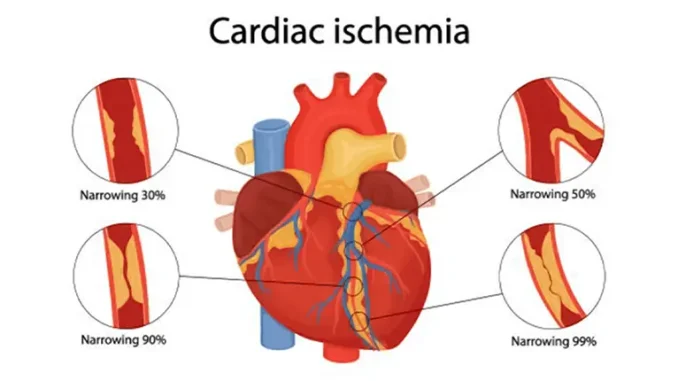
Ischemic heart disease (IHD), also referred to as coronary artery disease (CAD) or coronary heart disease (CHD), is a serious condition that occurs when the blood supply to the heart muscle is reduced due to narrowed or blocked coronary arteries...CONTINUE READING THE FULL ARTICLES HERE
These arteries become restricted over time because of the buildup of fatty deposits, known as atherosclerosis. This reduced blood flow means the heart doesn’t get enough oxygen, especially during physical activity or stress.
Common symptoms include chest pain or discomfort (angina), shortness of breath, fatigue, and, in more serious cases, heart attacks. The primary risk factors for IHD are high blood pressure, high cholesterol, diabetes, smoking, obesity, lack of exercise, and a family history of heart disease.
If not managed, ischemic heart disease can lead to serious complications such as heart failure, irregular heart rhythms, or sudden cardiac death.
Treatment involves a combination of lifestyle changes, medication, and in some cases, surgical procedures like bypass surgery. Preventative steps include healthy eating, regular exercise, and avoiding tobacco.
Kindly Follow Our WhatsApp Channel
Disclaimer: This content including advice provides generic information only. It is in no way a substitute for a qualified medical opinion. Always consult a specialist or your own doctor for more information. NEWSHOUR does not claim responsibility for this information.
